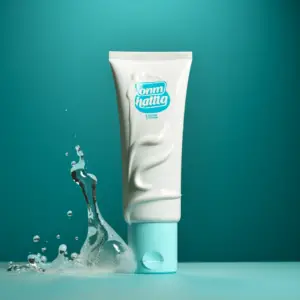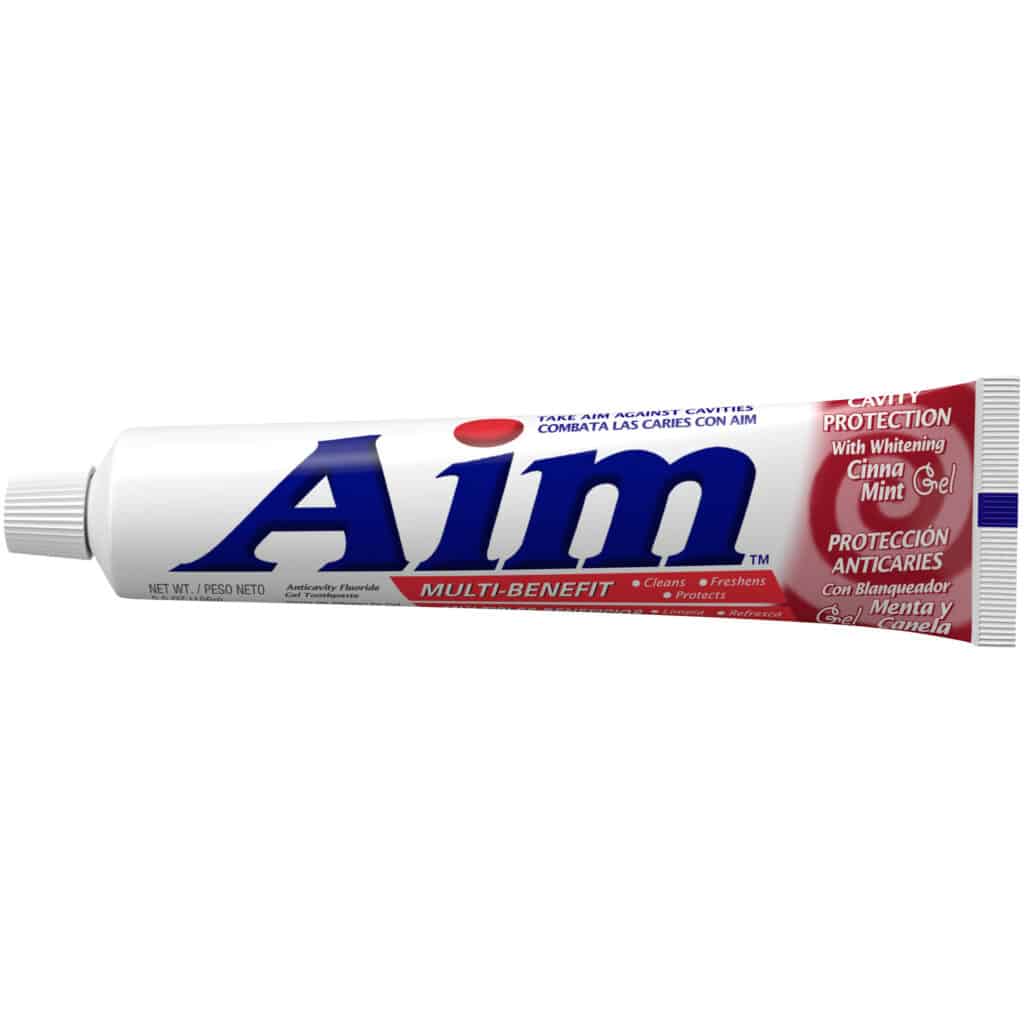Aim toothpaste has been on the market since 1973 and is ADA certified. Many individuals agree that it does an excellent job of keeping our teeth and breath healthy.
Despite its excellent performance, Aim toothpaste remains one of the most affordable toothpaste. In this post, we’ll go over some of the reasons why Aim toothpaste is so inexpensive.
Table of Contents
Reasons Why Aim Toothpaste is So Cheap

Regular kinds of toothpaste are Actually Cheap
Most regular kinds of toothpaste are made from inexpensive and readily available ingredients. This, in turn, reflects in the cost of the toothpaste.
However, the low cost of ingredients used by regular toothpaste does not mean that they are of low quality. Without being able to take care of your teeth, Aim would not be approved by the ADA. Only after confirming the efficacy and safety of a product can a company receive an ADA certificate of approval.
Low-cost Branding
In today’s competitive business world, the cost of branding is enormous! Compared to comparable brands like Colgate and Crest, Aim spends very little on branding.
That’s how Aim got its low-priced toothpaste competitive advantage. Colgate and other competitors can’t match Aim’s price cuts. And it isn’t just because of better quality.
Fierce Competition
You must have the more outstanding quality to compete with brands like Colgate and Crest. In terms of superior quality, Aim is no better than Colgate.
As a result, to stay in business, they have to drop their prices, reducing their profit margin. That is, we suppose, their marketing approach. But the important thing is that it gets the job done!
Is Aim Toothpaste Good?
Aim toothpaste is a good toothpaste for oral hygiene. Many people have been using this toothpaste for at least 20 years and have healthy teeth.
Many people actually prefer this brand to more expensive brands not only because of the low price but also because of the taste!
Nobody gets cavities as a result of using toothpaste! For your teeth, any generic toothpaste will suffice. Besides, Aim isn’t generic toothpaste; it’s made by Church and Dwight (Arm & Hammer). So, it would be best if you considered it a budget toothpaste, but not cheap.
Brushing your teeth on a regular basis is more crucial than the toothpaste you use. Make an appointment with your dentist twice a year. That is what matters most!
What to Consider When Selecting a Toothpaste
Purchasing toothpaste does not have to be a stressful or time-consuming process. All you have to do is know what to search for and consider your specific oral health requirements.
Fluoride
The most crucial factor to consider when selecting toothpaste is fluoride content. This naturally occurring mineral assists in cavity prevention. Fluoride builds tooth enamel and can help prevent tooth decay in its early stages.
Tartar Control
Plaque can harden into tartar if not eradicated with appropriate oral hygiene. Teeth-whitening toothpastes prevent tartar. Find pyrophosphates and zinc citrate to fight tartar.
Whitening
If you want a brighter smile, whitening toothpaste is a good option. Whitening toothpaste use abrasive particles or chemicals instead of bleach. Don’t be concerned! According to studies, whitening toothpaste is just as gentle on the enamel as other toothpaste.
Sensitive Teeth
You might be one of those persons whose teeth are sensitive to extremes in temperature. There is toothpaste that can assist! Potassium nitrate or strontium chloride are found in toothpaste for sensitive teeth.
ADA Approval
You can trust toothpaste with the American Dental Association (ADA) mark of approval to do exactly what it claims. The ADA seal indicates that a product has been examined and evaluated for safety and efficacy. Fluoride is also present in all toothpaste with the ADA mark.
Is Whitening Toothpaste Effective?

Whitening toothpaste works, but most don’t include enough whitening ingredients to produce apparent results in the near term.
Can Over-the-Counter Sensitive-Tooth Toothpaste Match Prescription Toothpaste?
You have a few options if your teeth are sensitive. Certain sensitive toothpaste are available over-the-counter (OTC). Alternatively, you might pay more to have your dentist prescribe sensitive toothpaste.
OTC-sensitive toothpastes have been shown to be effective. This can be an excellent place to start. If you’re not receiving the results you’re looking for, talk to your dentist about switching to a prescription-strength toothpaste.
Should You Rinse Your Mouth After Brushing?
Rinsing after using any toothpaste reduces toothpaste advantages since the fluoride that helps remineralize teeth and reduce sensitivity is washed away.
Rinsing, eating, and drinking should be delayed for 30 minutes after brushing. Brushing your teeth right before bedtime is suggested.
Is it Possible to Restore Enamel with Toothpaste?
Many toothpaste brands on the market claim to be able to rebuild enamel. The truth is that it is possible, but it is dependent on your teeth’ condition.
As long as the toothpaste is fluoridated, it will aid in the restoration of enamel that has not yet eroded. However, once decay has set in, all bets are off.
Should You Try Toothpaste with Aloe Vera?
Various companies may also advertise that their toothpaste contains aloe vera. You may wonder if this is significant or beneficial to your oral health.
There is minimal evidence that aloe vera is more effective than a regular toothpaste at reducing plaque and gingivitis. Furthermore, several of those brands lack fluoride, a necessary component of toothpaste.
Should You Try Charcoal Toothpaste or Powder?
Charcoal toothpaste, which is relatively new to the market, has become the latest craze to hit the store shelves and internet marketing campaigns. You should avoid using charcoal-based treatments on your teeth in general.
Charcoal is abrasive, and there is little to no evidence that it has any beneficial properties. If anything, charcoal can harm the enamel layer of your teeth, leading to increased long-term sensitivity.


